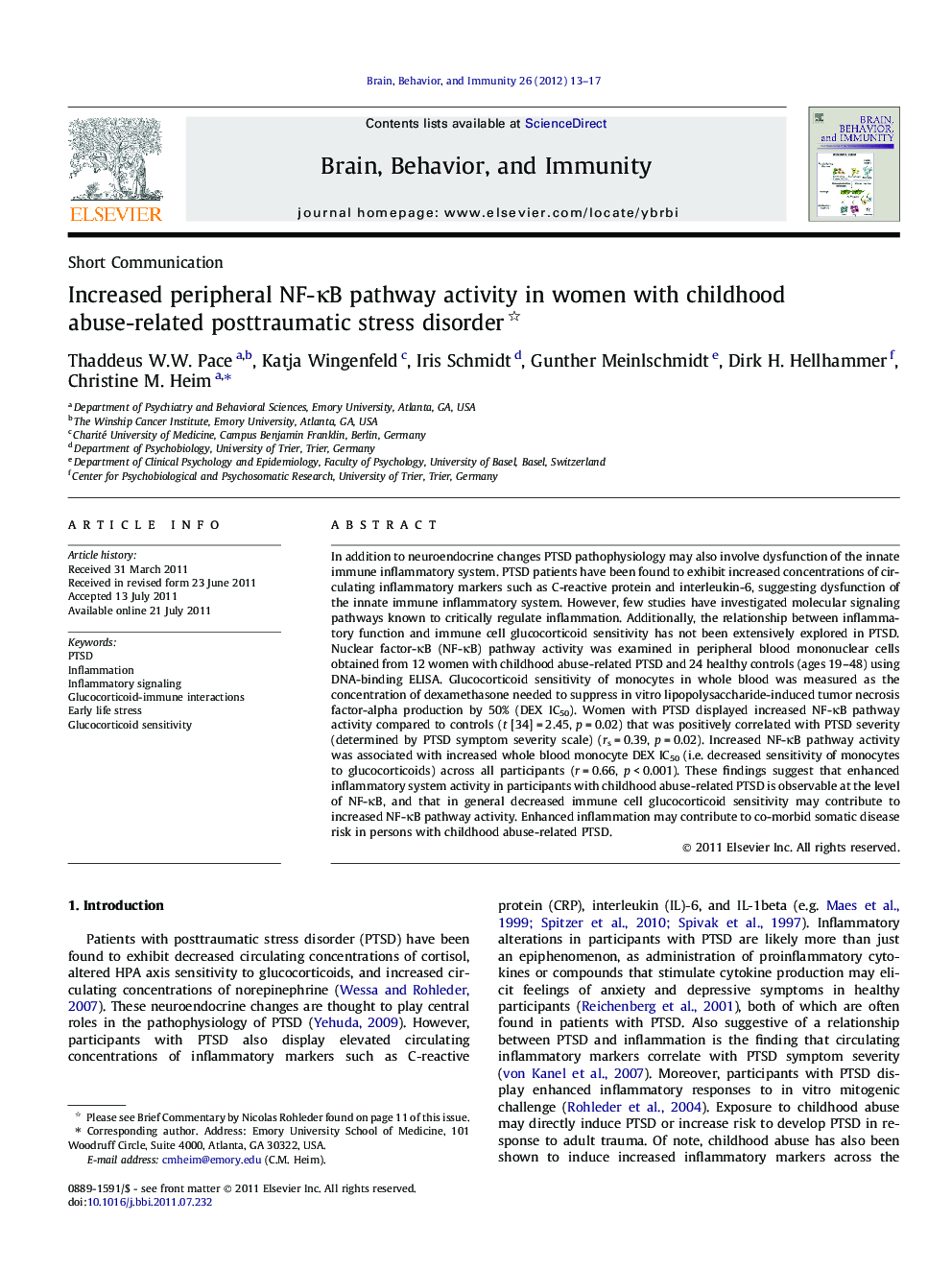| کد مقاله | کد نشریه | سال انتشار | مقاله انگلیسی | نسخه تمام متن |
|---|---|---|---|---|
| 922363 | 921041 | 2012 | 5 صفحه PDF | دانلود رایگان |

In addition to neuroendocrine changes PTSD pathophysiology may also involve dysfunction of the innate immune inflammatory system. PTSD patients have been found to exhibit increased concentrations of circulating inflammatory markers such as C-reactive protein and interleukin-6, suggesting dysfunction of the innate immune inflammatory system. However, few studies have investigated molecular signaling pathways known to critically regulate inflammation. Additionally, the relationship between inflammatory function and immune cell glucocorticoid sensitivity has not been extensively explored in PTSD. Nuclear factor-κB (NF-κB) pathway activity was examined in peripheral blood mononuclear cells obtained from 12 women with childhood abuse-related PTSD and 24 healthy controls (ages 19–48) using DNA-binding ELISA. Glucocorticoid sensitivity of monocytes in whole blood was measured as the concentration of dexamethasone needed to suppress in vitro lipopolysaccharide-induced tumor necrosis factor-alpha production by 50% (DEX IC50). Women with PTSD displayed increased NF-κB pathway activity compared to controls (t [34] = 2.45, p = 0.02) that was positively correlated with PTSD severity (determined by PTSD symptom severity scale) (rs = 0.39, p = 0.02). Increased NF-κB pathway activity was associated with increased whole blood monocyte DEX IC50 (i.e. decreased sensitivity of monocytes to glucocorticoids) across all participants (r = 0.66, p < 0.001). These findings suggest that enhanced inflammatory system activity in participants with childhood abuse-related PTSD is observable at the level of NF-κB, and that in general decreased immune cell glucocorticoid sensitivity may contribute to increased NF-κB pathway activity. Enhanced inflammation may contribute to co-morbid somatic disease risk in persons with childhood abuse-related PTSD.
Highlight
► Compared to healthy controls, women with childhood abuse-related PTSD were found to exhibit increased peripheral blood mononuclear cell nuclear factor-κB pathway activity.
Journal: Brain, Behavior, and Immunity - Volume 26, Issue 1, January 2012, Pages 13–17